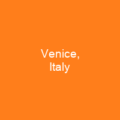Italy: A Country of Rich History and Culture
Italy is a country that has captivated the world for centuries with its rich history, stunning landscapes, and vibrant culture. From ancient Roman ruins to modern-day fashion capitals, Italy’s story is one of constant evolution and enduring charm. Let’s dive into what makes this Mediterranean gem so special!
The History of Italy: A Timeline of Greatness
Italy has a history that stretches back millennia, from the ancient Romans to the Renaissance masters.
- Roman Empire: The Roman Empire, which dominated much of Europe and beyond, laid the foundations for Western civilization. Its legacy is still felt today in language, law, architecture, and more.
- Renaissance: The Renaissance period saw a revival of classical learning and art, producing giants like Leonardo da Vinci, Michelangelo, and Raphael. It was a time of great cultural and scientific advancements.
- Unification: In the 19th century, Italy was unified under King Victor Emmanuel II, marking the end of foreign domination and the beginning of modern Italian nationhood.
Culture and Traditions: A Blend of Old and New
Italy is a melting pot of cultures, where ancient traditions meet cutting-edge innovation. From the bustling streets of Rome to the serene canals of Venice, every corner tells a story.
- Cuisine: Italian food is synonymous with pizza and pasta, but there’s so much more! Think about regional specialties like Tuscany’s Chianti or Piedmontese Barolo. Italy takes pride in its traditional dishes, many of which are protected by EU law.
- Fashion: Milan and Florence are fashion capitals, home to iconic brands that have shaped the global fashion industry. From haute couture to streetwear, Italian fashion is a blend of elegance and creativity.
Nature and Landscapes: A Visual Feast for the Eyes
Italy’s diverse landscapes offer something for everyone—mountains, beaches, vineyards, and bustling cities. The country’s geography has influenced its culture in countless ways.
- Mountains: The Apennines run through the center of Italy, while the Alps form a natural border with France, Switzerland, and Austria. These mountains are not only beautiful but also home to ski resorts that attract visitors year-round.
- Beaches: Along the Mediterranean coast, you’ll find long stretches of golden sand and crystal-clear waters. Places like Sardinia and Sicily offer a perfect blend of relaxation and adventure.
Modern Italy: A Country on the Move
Italy is a country that has faced its share of challenges, but it continues to thrive in many areas. From technology to sustainability, here’s how modern Italy is shaping the future.
- Economy: Italy is known for its strong manufacturing sector and innovative businesses. The country is a leader in renewable energy, with solar power accounting for a significant portion of its electricity production.
- Sustainability: Italy has implemented measures to protect the environment and promote biodiversity. However, air pollution remains an issue, particularly in industrialized regions like northern Italy.
Culture and Festivals: A Year-Round Celebration
No visit to Italy would be complete without experiencing its vibrant festivals and traditions. From religious celebrations to local fairs, there’s always something going on.
- Festivals: Events like the Venice Film Festival, recognized by UNESCO as an intangible cultural heritage site, draw international attention. Other notable festivals include the Festa della Repubblica and Saint Lucy’s Day.
- Carnival: The Carnival of Venice is one of the most famous in the world, with elaborate masks and costumes that transport you back to a bygone era.
Conclusion: Italy’s Enduring Charm
Italy is more than just a country; it’s a living, breathing testament to human creativity and resilience. From its ancient ruins to its modern innovations, Italy continues to captivate the world with its beauty, culture, and spirit.

You want to know more about Italy?
This page is based on the article Italy published in Wikipedia (retrieved on March 7, 2025) and was automatically summarized using artificial intelligence.







